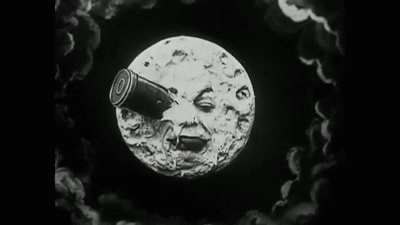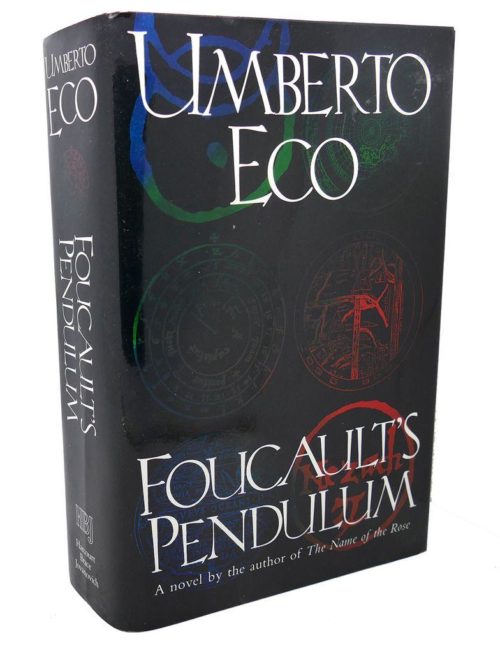BROKEN KNOWLEDGE (7)
By:
October 30, 2025

University of Toronto philosopher Mark Kingwell and HILOBROW‘s Josh Glenn are coauthors of The Idler’s Glossary (2008), The Wage Slave’s Glossary (2011), and The Adventurer’s Glossary (2021). In 2022, they engaged in an epistolary exchange about science fiction. Via the series BROKEN KNOWLEDGE, the title of which references Francis Bacon’s philosophy, HILOBROW is pleased to share a lightly edited version of their exchange with our readers. Also see Josh and Mark’s previous exchange 49th PARALLEL.
BROKEN KNOWLEDGE: FIRST CONTACT | WHAT IF? | A HYBRID GENRE | COUNTERFACTUALS | A HOT DILUTE SOUP | I’M A CYBORG | APOPHENIC-CURIOUS | AN AESTHETICS OF DIRT | PAGING DR. KRISTEVA | POLICING THE GENRE | FAMILIAR STRANGENESS | GAME OVER | THE WORLD VIEWED | DEFAMILIARIZATION | SINGULAR CREATURES | ALIEN ARCHAEOLOGIST | THE PHENOMENOLOGY OF SCREEN-TIME | HOMO SUPERIOR | EVERYTHING IS US.

29th September, 2022
BOSTON
You buried the lede! It feels more than a little absurd to ask you to continue with our epistolary exchange when you’re in a hospital bed with tubes plugged into your neck. Of course, you and I have talked several times — via Zoom — during your transplant odyssey, and I know all about it. But for future readers of this exchange, it’s a shocker. And no, I’m not a cyborg — though I rely so entirely on my iPhone that I might as well be one.
I’m apophenic-curious, as you already know. I greatly enjoy paranoid thrillers and epistemological puzzlers by the authors you mention and others — Philip K. Dick, Stanislaw Lem, etc. — almost all of whom you manage to reference in the excellent “Apophenic Adventures” issue of Queen’s Quarterly that you guest-edited last year. Beyond reading such adventures, I have a connect-the-dots kind of mind myself, and have written my fair share of ersatz conspiracy theories. One of my proudest moments, in 1995 (when I was just out of grad school), came when the editors of Paranoia magazine asked permission to reprint my essay “Woodstock Never Happened.” I’m like the characters Casaubon, Belbo, and Diotallevi, in Eco’s Foucault’s Pendulum, who are almost worrisomely talented at mimicking the paranoid style of actual deluded conspiracy nuts.
Yes, it’s a balancing act, isn’t it? Think — make connections — but know when to stop. On the other hand, no paradigm has ever been shattered unless someone ignored that rule. As you note, the sense of wonder is absolutely crucial to doing science well — and to living a fulfilling life whether you’re a scientist or not. But in order to function efficiently, day to day, we’re all required to tamp down or blunt that sense of wonder — and the longer and more firmly we do so, the more difficult it is to reignite it. (I’m badly mixing metaphors.) Aldous Huxley’s The Doors of Perception gets at this stuff. I’m sure I don’t have to tell you that its title is taken from Blake’s “The Marriage of Heaven and Hell”: “If the doors of perception were cleansed every thing would appear to man as it is: Infinite. For man has closed himself up, till he sees all things thro’ narrow chinks of his cavern.” Which may help to explain the appeal of sf, which is so often terrific at allowing us to experience what it feels like (or might feel like; this is fiction) to be on the cutting edge of scientific and technological discovery. It feels thrilling — but also uncanny, frightening, deeply troubling.
One theory about why sf as we know it first began to emerge during the 1900-1935 period is that truly uncanny breakthroughs were happening in physics, chemistry, astronomy, mathematics, and also technology at that precise moment. Marie Curie’s work, quantum theory, special relativity, wireless telegraphy, Fourth Dimension stuff, genetics, cosmic rays, the structure of the atom, the expanding universe, Freud’s theories, rocketry, radio, TV. These developments should have been (and were) exciting… but they made it strikingly apparent that the building blocks of the universe are wildly complex. And unless you’re Einstein, you (we) will never fully comprehend any of this stuff. One of the appeals of the sf of that era is that turned this mixture of wonder and anxiety into fun reading.
At least, that’s one theory.
PS: A note on J.B.S. Haldane — I didn’t realize you were a fan! I’ve recently discovered Charlotte Haldane, his second wife, a journalist and feminist… of sorts. I’m fascinated by a very hard-to-find proto-sf novel of hers, Man’s World (1926), which simultaneously champions J.B.S.’s “progressive” stance in favor of eugenics but also gives voice to Bertrand Russell’s opposition to J.B.S.’s theories. A thoroughly equivocal work, then, and one which I’ve persuaded the MIT Press to reissue in (I think) spring 2024. PS: J.B.S. had a sister, Naomi Mitchison, who also wrote science fiction (I haven’t read it yet), and who was a friend of Tolkien’s and a proofreader of The Lord of the Rings. Wow! Mitchison’s brand of feminism, like her sister-in-law’s, seems complex and fraught, btw.
PPS: P.D. James is female? I had no idea. Blush. Agree that the movie was terrific. Clive Owen never lets us down.
Josh
ALSO SEE: Josh’s BEST 250 ADVENTURES of the 20th CENTURY list | Mark on BATTLESTAR GALACTICA and THE HONG KONG CAVALIERS | Mark and Josh’s exchange 49th PARALLEL.
